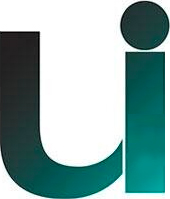Don't Ignore Sleep Apnea: Why Treatment is Crucial for Your Well-Being
Feb 21, 2024
Sleep apnea is a prevalent yet often misunderstood sleep disorder that can significantly impact an individual's health and quality of life.
Characterized by repetitive upper throat collapse during sleep, sleep apnea leads to the closure of the breathing passage, causing oxygen levels to drop and potentially endangering one's health. This article will discuss the symptoms, challenges, treatment options, and recent advancements in managing sleep apnea.

Symptoms and Impact of Sleep Apnea
People with sleep apnea often experience interrupted sleep patterns, leading to fatigue, headaches, decreased energy levels, and cognitive decline. The condition not only affects daily functioning but also poses long-term health risks, including cardiovascular strain, increased risk of accidents, and mood disorders such as anxiety and depression.
Challenges Faced with Sleep Apnea
A day in the life of someone with sleep apnea can be marked by persistent fatigue, reduced cognitive function, and a diminished quality of life. However, effective management strategies, such as Continuous Positive Airway Pressure (CPAP) therapy, offer hope and relief for many individuals.
CPAP therapy involves using a machine that delivers continuous air through a mask, keeping the airway open and allowing for uninterrupted breathing during sleep. While CPAP requires diligence in mask maintenance and adherence, its benefits outweigh the inconveniences.
Treatment Options and Adherence
While CPAP remains the gold standard for treating sleep apnea, approximately 40% of users struggle with adherence due to discomfort or claustrophobia.
Alternative options, including oral appliances, localized surgery, and devices like the Inspire hypoglossal nerve stimulator, are recommended for those who want to treat their sleep apnea based on anatomical considerations and personal preference.
The Inspire device has shown remarkable efficacy in treating sleep apnea by stimulating the hypoglossal nerve (tongue nerve) to maintain airway patency during sleep. With minimal invasiveness and a high adherence rate of 90% compared to the CPAP with 50-60%, Inspire represents a promising advancement in sleep apnea management. Patients turn the device on at night, monitoring their breathing and preventing the tongue from blocking their throat.
The Importance of Sleep Studies
Accurate diagnosis and sleep apnea monitoring often require sleep studies, which assess various parameters such as breathing patterns, heart rate, and oxygen levels during sleep. While traditional in-laboratory sleep studies remain effective, they can be intrusive due to the unnatural environment of sleeping and the amount of devices connected to a person.
Home sleep studies offer a convenient and less invasive alternative. Non-medical devices for sleep studies are also available, where a person simply attaches the device around their finger while sleeping. Once they wake up, the device can be connected to a phone to view all the recorded sleep parameters.
The information gathered from these at-home devices correlates highly with the data collected from in-laboratory sleep studies.
The Misconception of Snoring
While snoring is common among individuals with sleep apnea, it is not a definitive indicator of the condition. Severe cases of sleep apnea may occur without accompanying snoring, highlighting the importance of comprehensive evaluation and diagnosis by qualified healthcare professionals.
Know the Signs and Get Treatment
Sleep apnea presents multifaceted challenges that can significantly impact an individual's health, well-being, and quality of life.
However, with advancements in treatment modalities and a growing understanding of the condition's complexities, effective management strategies offer hope and relief for sleep apnea patients. By raising awareness, fostering adherence to treatment regimens, and embracing innovative solutions, we can empower individuals to reclaim restful sleep and lead fulfilling lives free from the burdens of sleep apnea.




